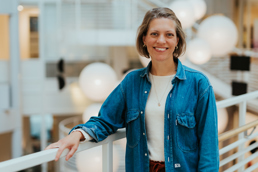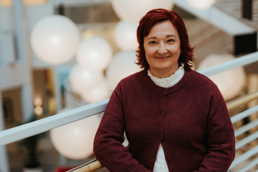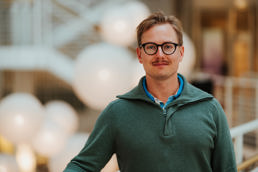Chronic pelvic pain among Somali women living in Norway. Effect of self-management strategies assessed through a single-case experimental design
- Project period: 2025 - 2028
- Category: Applied Research
Description
Female chronic pelvic pain (CPP) account for approximately 20% of gynecology consultations worldwide. Research show high-quality evidence to support multimodal physical therapy including self-management strategies to improve CPP. However, among Somali women living in Norway, this evidence is lacking. The current project will develop a multimodal treatment approach in the primary health care sector in Norway delivered by 4 specialists in women´s health physioterapy. The primary aim is to study the effect of pain education and physical activity on CPP. Secondary aims is to study the effect of quality of life, health literacy, treatment satisfaction, perceived change, pelvic floor muscle function, and the experiences among Somali women and physiotherapists involved. The effects will be explored through a single case experimental design (SCED), with randomized baseline lengths, using quantitative and qualitative data. 20 women of Somali origin, living in Norway, presenting with CPP will be included. Exclusion criteria will be somatic or psyciatric conditions that would inferfere with participation, pregnancy, breastfeeding or delivery the last 12 months and regular exercise. The treatment protocol includes pain education, general exercise and pelvic floor muscle training to be performed in 16 individual sessions over 6 months. Outcomes will be measured at pre- and post-intervention (6 months) and 12 months follow-up. Assessment of the pelvic floor muscles will be performed after two months in the intervention and at post-intervention. Weekly measures of CPP and quality of life will be throughout baseline and the intervention period. Individual qualitative interviews will be performed at post-intervention among the physiotherapists and the Somali women. The project will bring forward research on self-management strategies that could improve CPP, equip womens health physiotherapists with valuable tools in their daily practice and potentially reduce societal costs.
Participants

Merete Kolberg Tennfjord
- Project manager
- Associate Professor
Kristiania University of Applied Sciences
Department of Health and exercise
Merete Kolberg TennfjordIda Flink
Karlstad University

Miroslava Tokovska
- Associate Professor
Kristiania University of Applied Sciences
Department of Health and exercise
Miroslava Tokovska
Simen Christensen Grøgaard
- Assistant Professor
Kristiania University of Applied Sciences
Department of Psychology, Pedagogy and Law
Simen Christensen Grøgaard
Marianne Molin
- Professor
Kristiania University of Applied Sciences
Department of Health and exercise
Marianne MolinKarolina S. Mæland
OsloMet - Oslo Metropolitan University